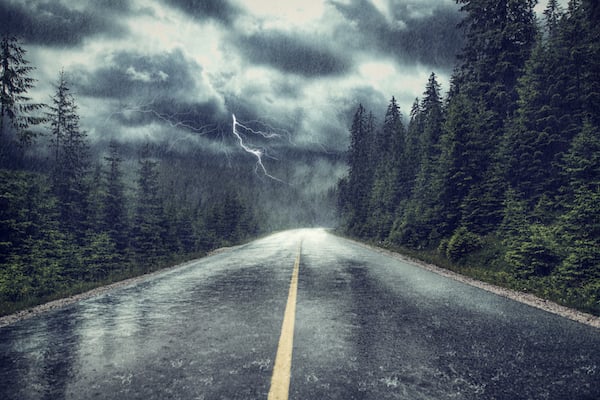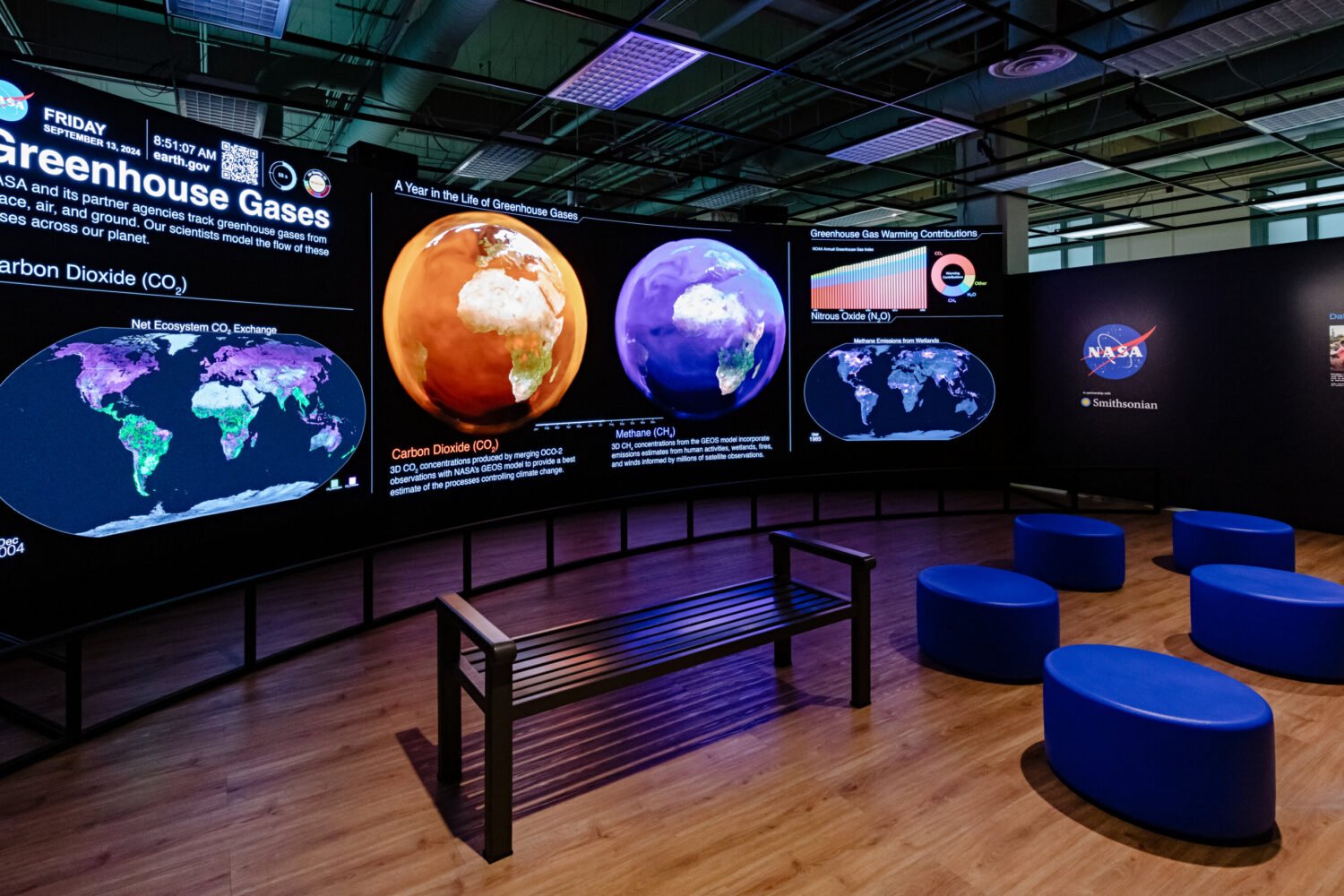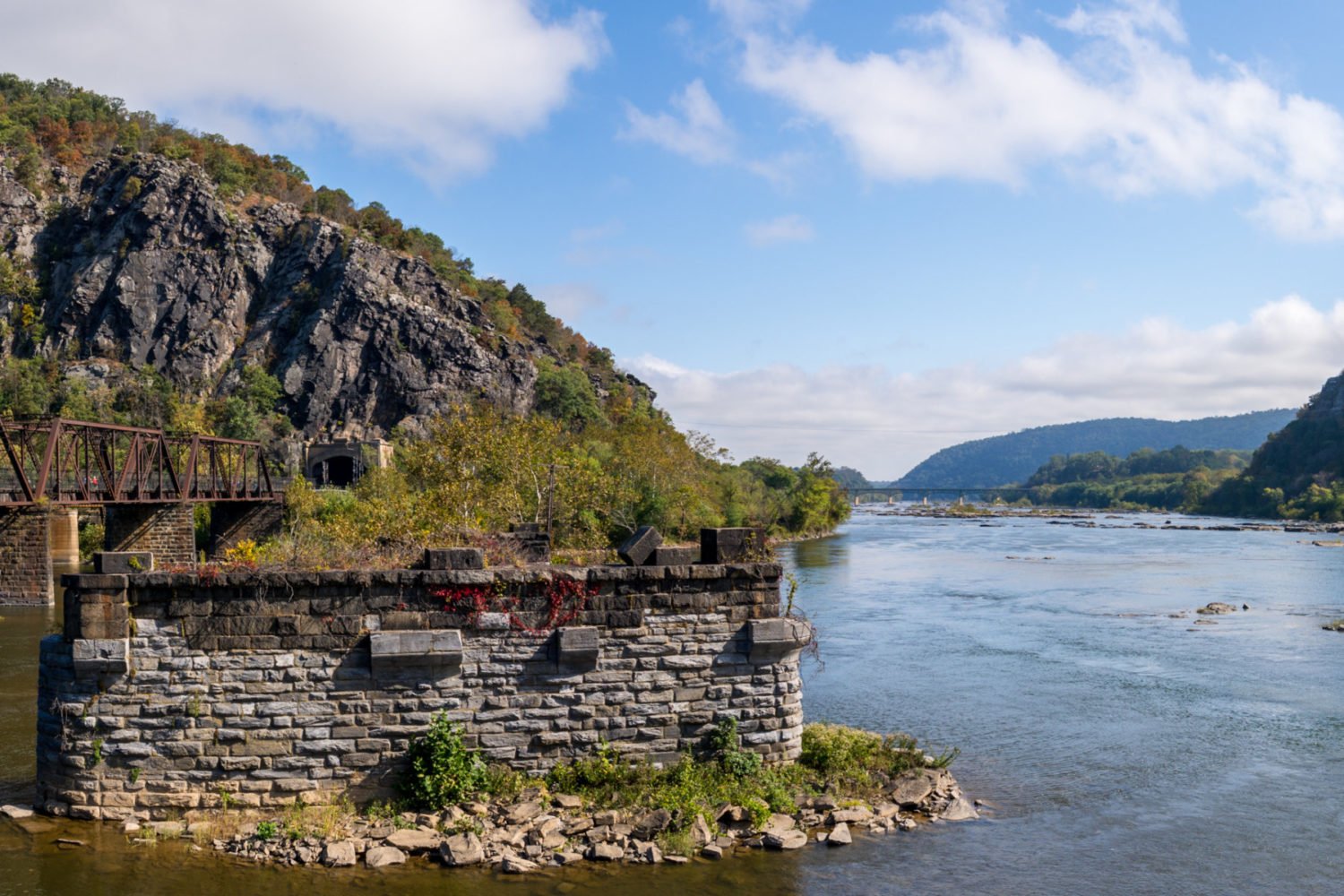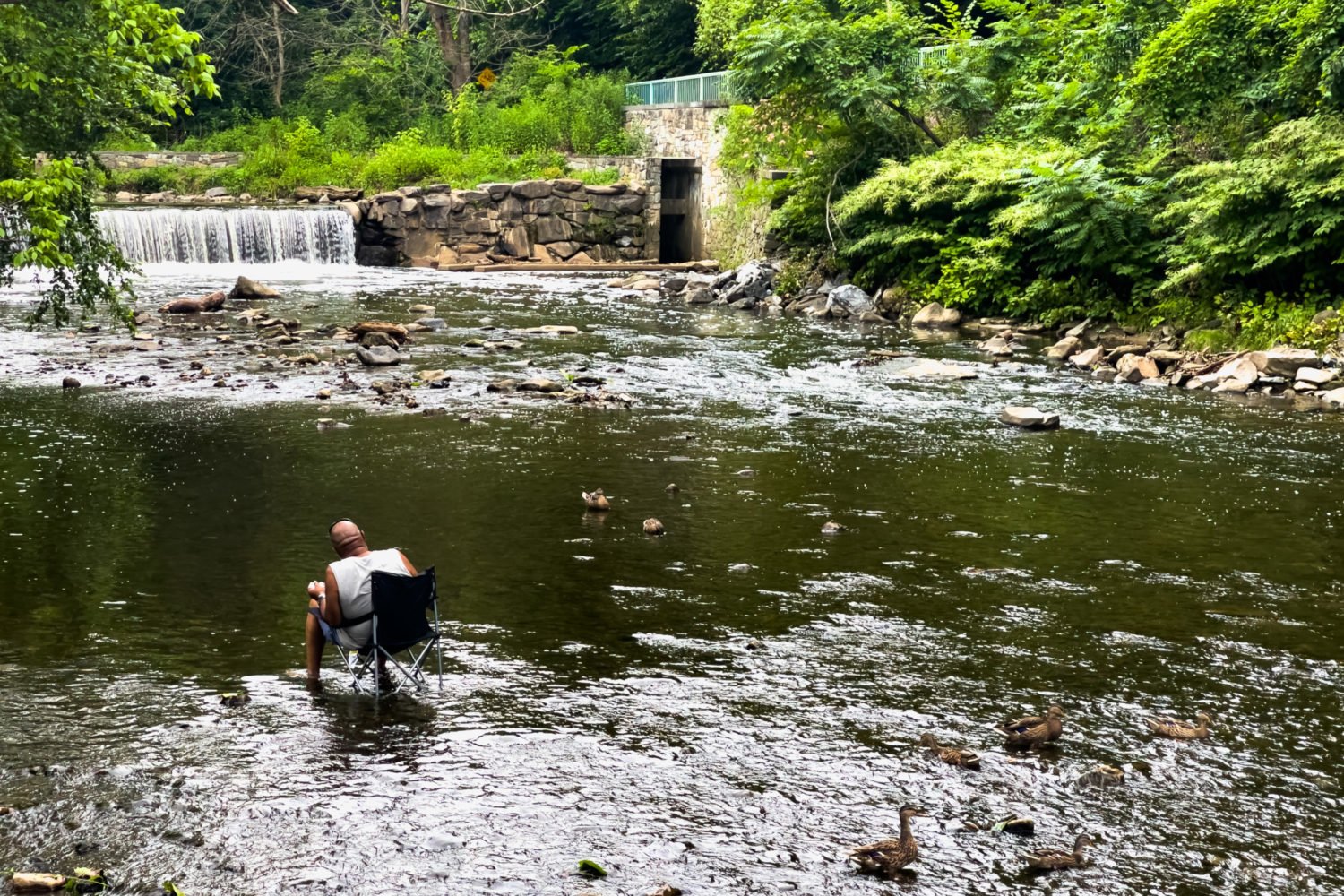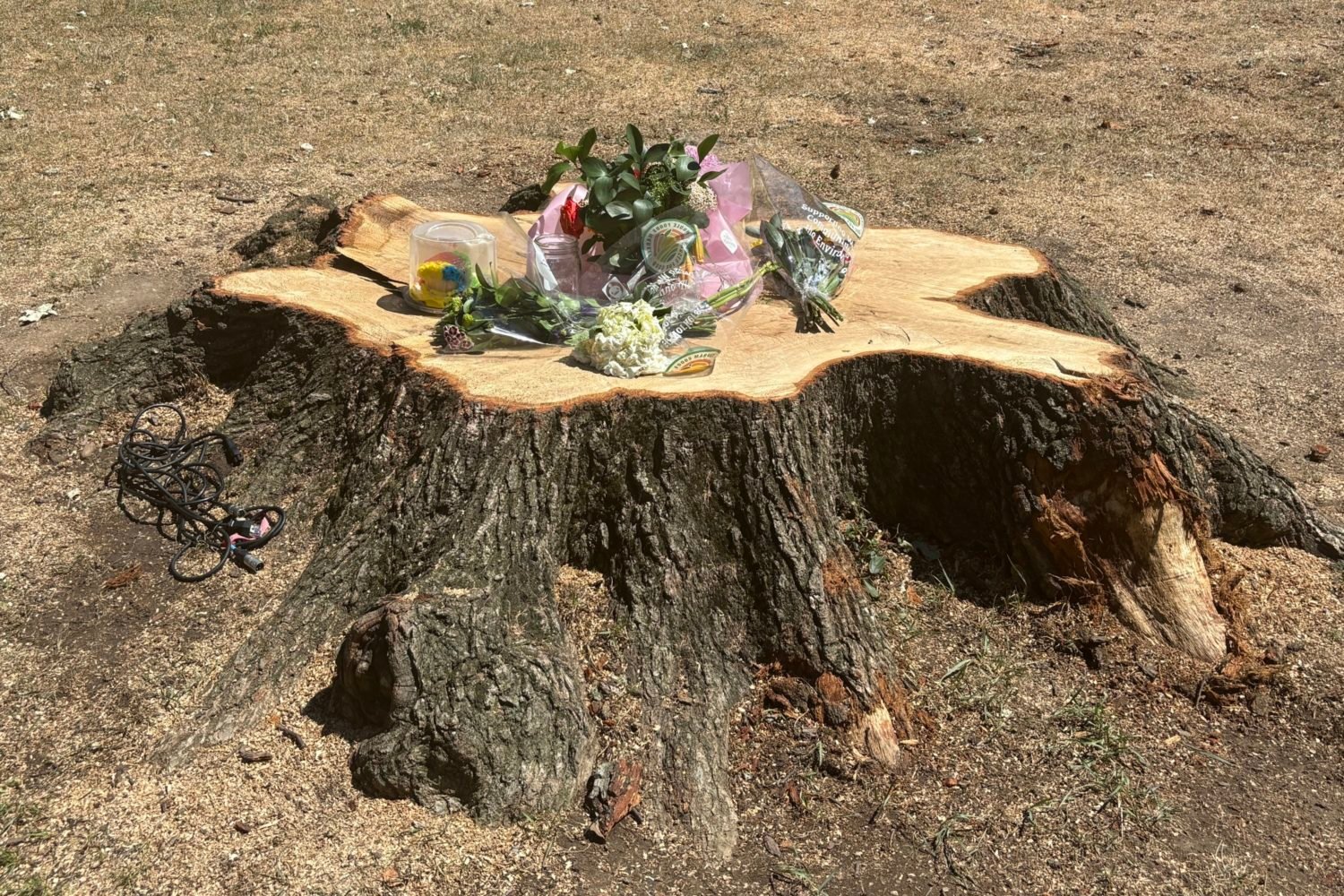A few months ago, Matt Fitzpatrick, a researcher at the University of Maryland Center for Environmental Science, was struck with an idea for an unusual research paper: He wanted to show Americans what their hometown weather would resemble, given current projections, roughly 60 years from today.
Working in a lab in Cambridge, Maryland, Fitzpatrick’s team built a model that combined 57 possible climate scenarios for 12 temperature and precipitation variables. The paper, published last month in Nature, used the data to pair 540 American urban areas with a climate change “sister city”—a far-flung place in the American heartland with weather that, Fitzpatrick believes, you could plausibly find yourself experiencing sooner than you think. In 2080, his study projects, New Yorkers will be living in the climate equivalent of present day Jonesboro, Arkansas, with winters roughly eight percent warmer and nearly 11 percent wetter than today. Philadelphians will be living with the weather of New South Memphis, Tennessee, while Richmonders will have to adjust to the summers of Huntsville, Texas, which are 25 percent drier.
DC held Fitzpatrick’s interest as a model example. “I figured with it being the capital, maybe it would catch the attention of the appropriate people,” he said. When Fitzpatrick churned the numbers, his computer spat out the name of a small town in the Deep South, DC’s ghost of climate future: Greenwood, Mississippi.
Greenwood most closely resembled the changes that greater Washington will witness by 2080: Winters that are 20 percent wetter and spring and fall seasons that are about nine degrees warmer. Summer changes will be the most pronounced, at nearly 11 degrees hotter and eight percent wetter. “We’re talking about really long, hot, humid summers,” said Fitzpatrick.
Set in the heart of the Lower Mississippi River Basin, Greenwood is a town of approximately 16,000 residents. (It was also ground zero of civil rights protests and retaliations in the 1960s—and the location of Stokely Carmichael’s “Black Power” declamation.) The town sits at the point where the Tallahatchie and Yalobusha rivers curl together to form the Yazoo. Federal data suggests the region hasn’t been spared from the effects of a changing climate, reflecting an overall temperature increase of a half degree in the region over the previous decade.
In a reportorial effort to prepare DC for the Mississippi climate, Washingtonian attempted to contact several citizens of Greenwood. The first exchange did not suggest promise: It began with a failed request to interview Christopher Mathis, principal meteorologist for WABG-TV, popularly known as Delta TV News, where Mathis has covered the weather since 2002. “I’ll have to respectfully decline any comment on that ‘climate change’ report,” Mattis wrote in an email. Predicting the weather is hard enough, he said; claims of climate change struck him as suspicious. “I’m highly skeptical of forecasts that go sixty years into the future.”
Bettie Ray, who works for the City of Greenwood, said that such sentiments aren’t unheard of around town. “People will discuss it with you here—no one’s going to be rude,” Ray told me. Even so, she was reluctant to discuss her own feelings about climate change. “I’m reserving my opinion” on global warming, she explained, in a mellifluous southern cadence that seemed to drizzle through the phone like Mississippi molasses. “It’s kind of like I’m riding the fence.”
Next I called Girard Edic, a reporter at local newspaper the Greenwood Commonwealth who has covered the town’s climate-change issues. “Summers here are very awful—hot, muggy, humid,” he said. “What makes the summers really bad, though, is all the mosquitoes.” Edic has covered the mosquito issue in Greenwood, as the situation became so untenable in recent years that the mayor has occasionally increased the number of insecticide sprays per week, from three to sometimes five. For one story, Edic spoke to area professors, who warned him that the problem could worsen with climate change: More rainfall means more still water, a boon for mosquito breeding.
(Edic also diligently followed the mosquito story to the doorstep of a local Greenwood woman, Jan Locke, who claimed to have concocted the preeminent homemade insect repellent. The spray consists of epsom salt, cheap mouthwash, and stale beer—and smells, mercifully, only like mouthwash.)
But both Edic and Ray had something else they wanted to talk about: the floods. “I don’t know what it does in DC,” Ray said. “Here, we usually have a rainy season. But certainly nothing like we’ve had this year.” In February, the same month that Fitzpatrick’s report was published, a storm in Greenwood set a single-day record for precipitation, according to the National Weather Service. The town’s three rivers swelled, causing damage to some homes and the flooding of at least one thoroughfare, according to Edic. “We had some very high water, all the way up to our two bridges,” Ray said. “It doesn’t usually do that. The last time it flooded here was 1973.”
There is debate in climate science circles as to how closely such events should be linked to climate change. But Zach Maye, a meteorologist at the NWS division in Memphis, says the argument connecting climate change is robust: Higher average air temperatures plausibly retain more moisture, contributing to heavier precipitation. “We’ve noticed an increase in heavy-precipitation events—we’re getting more rainfall, more frequently,” Maye said. “Our river’s been up now in flood stage since November—consistently—to March. It’s pretty astonishing.”
This month, a highly publicized report sponsored by the National Weather Service linked a confluence of flooding events in the Mississippi River Watershed to “extreme rainfall events [that] increased dramatically during the 1992-2017 period.” The report also found that the period lasting from September 2018 to February 2019 ranked as the wettest six months recorded in the last 124 years. “We can definitely see the link with Southern states,” said Maye. “The more precipitation we get, the more at-risk the entire South is going to be.”
Carolyn McAdams, Greenwood’s mayor, said she found aspects of this scenario plausible, but she was also quick to praise the virtues of the local weather. “I enjoy the climate here,” she said. “It gives me a taste of spring and summer, winter and fall—all the climate you’d like to see. I will change that a little bit to say that sometimes in July and August it can be brutally hot. And, of course, the mosquitoes—we are kind of noted for our mosquitoes here. And the rainfall that we’ve had this year, is certain to provide us with many of those little creatures called mosquitos.”
McAdams seemed to embody the attitudes I’d heard from several residents: muted feelings about climate-change politics despite assertive, even emphatic, observations about the local climate. “It’s really never been discussed,” McAdams said of climate change as a political topic in Greenwood. “That being said, I’ve noticed some differences in our climate over the years, from when I was a child to now. To me, it used to get colder in the winters than it does now. Then it’s been hotter in the summer than I remember in the past. But I don’t know if I buy into all of the global changing of the weather.”
She continued, “The temperature is definitely different than it was 20 or 30 year ago. Now, what that means 20 to 30 years in the future, I have no clue. I’m hoping that if there is a situation and a problem out there, someone’s on it, and solving it. Because I do know, in the Arctic, they’re saying the ice is melting back and back, and there’s not as much ice as there was. I don’t know if it’s true—I’ve never been. I don’t know what’s true, what’s real, in real time. But I do know I have seen a difference in my lifetime in the climate.”
Entwined in this sentiment, perhaps, is something that Fitzpatrick hopes the Nature study can get across: the persuasive power of the American hometown. Climate scientists and activists are typically given to asking the public to re-imagine the places they can already perceive. (The recent campaign “This Place Will Be Water” contains an especially apocalyptic flourish.) But the conceit of Fitzpatrick’s study is to collapse space as well as time—you can, after all, visit Greenwood right now—and in doing so, attempt to weave the future of American towns into a single narrative. In 2080, Washington’s climate conditions will be as unfamiliar to us as Greenwood is now, just as Greenwood will be unrecognizable to itself.
The study’s authors write that millions of Americans will encounter “conditions unlike those experienced in the same place by their parents, grandparents or perhaps any generation in millennia.” In Fitzpatrick’s telling, we won’t be visitors in a foreign country, so much as permanent residents of a new world.

